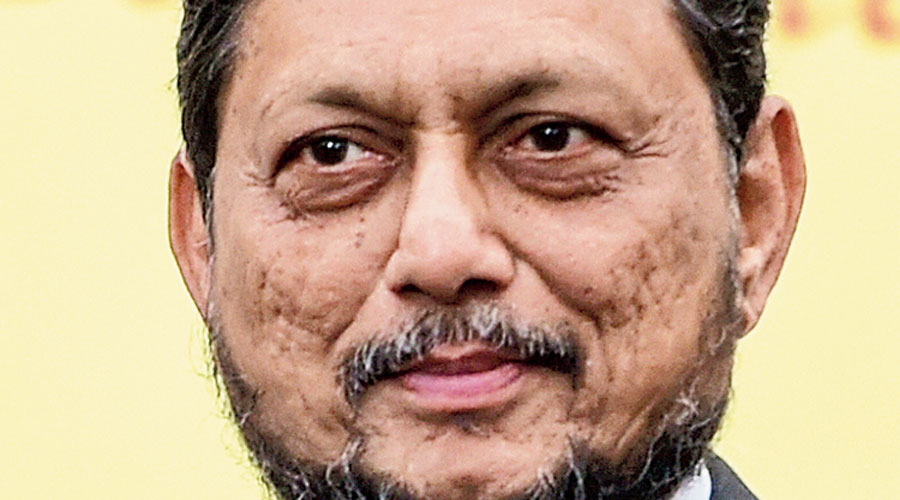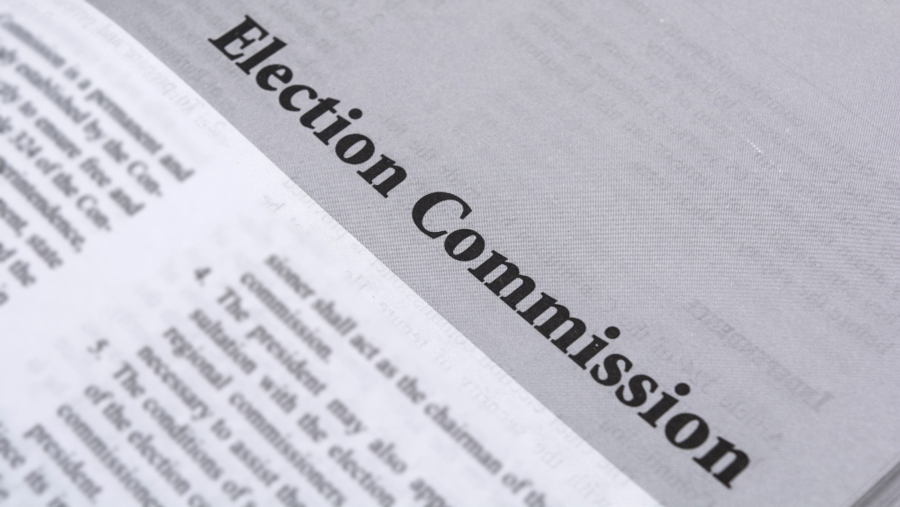Two Supreme Court officials who had been sacked in 2019 for allegedly tampering with a judicial order to exempt industrialist Anil Ambani from appearing in person in a contempt case were pardoned by Justice S.A. Bobde before he retired as Chief Justice of India last month, court sources have told The Telegraph.
The two officials, Manav Sharma and Tapan Kumar Chakraborty, functioned as court masters who record judicial orders pronounced by the judges in the highest court of the land.
Sharma has been reinstated with a reduction in rank on the condition that he would not be eligible for promotion for five years. Chakraborty’s sack order has been changed to “compulsory retirement”, enabling him to claim all retirement benefits such as provident fund, gratuity, pension and medical benefits, the sources said.
The steps were taken before Justice Bobde demitted office on April 23 this year, the sources added. The two were dismissed from service when Justice Ranjan Gogoi was the Chief Justice of India.
Justice Bobde could not be contacted for comment despite repeated attempts by this newspaper on Tuesday.
The two former court masters had pleaded for “mercy” and offered to forego their statutory right of appeal before the Chief Justice of India. Their punishment had been reduced on “humanitarian grounds”, the sources said.
Justice Bobde is understood to have signed the files on April 20 following the representations from the two erstwhile court masters.
An office order numbered 6/2021 and dated April 20, 2021, says: “On consideration of the representation dated 19.2.2021 of Mr Manav Sharma, Ex-Court master (shorthand) for reconsideration of the order regarding imposition of penalty of removal from service on him with effect from 13.2.2019 his prayer for mercy and the subsequent undertaking dated 18.3.21 to forego right of appeal and to treat appeal against removal from service as withdrawn, Hon’ble the Chief Justice of India, has purely on humanitarian grounds, been pleased to substitute the penalty of removal from service on him with the penalty of reduction in rank to the post of senior personal assistant, as prescribed in Rule 11(v) of Supreme Court Officers and Servants (conditions of services and conduct) Rules, 1961, with a stipulation that his case shall not be considered for promotion for a period of five years. As directed, the intervening period from 13.2.2019 till dated shall be treated as dies non.”
The order was issued in the name of S.N. Joshi, officer on special duty, vigilance, of the Supreme Court.
A second office order, numbered 7/2021, stated: “On consideration of the representation dated 2/11/2020 of Mr Tapan Kumar Chakraborty, Ex-Assistant Registrar, for re-consideration of the order regarding imposition of penalty for removal from service on him with effect from 13.2.2019, his prayer for mercy and the subsequent undertaking to forego right of appeal and to treat appeal against removal from service as withdrawn, Hon’ble Chief Justice of India has purely on humanitarian grounds been pleased to substitute the penalty of removal from service on him with the penalty of compulsory retirement as prescribed in Rule 11(v) of Supreme Court Officers and Servants (Conditions of Services and Conduct) Rules, 1961, with the direction that he shall be allowed retiral benefits under the relevant rules from the date of the order of imposition of original penalty on him i.e.13.2.2010.”
According to the sources, the move to pardon the two former court masters followed requests from a leader of the Supreme Court Employees Association. It had been contended that the punishment was disproportionately excessive, warranting a lenient view.
On February 13, 2019, exercising its extraordinary powers under Article 311 of the Constitution, the Supreme Court had dismissed Sharma and Chakraborty for allegedly tampering with a judicial order to exempt the presence of Ambani in a contempt case filed by Ericsson India.
Justice Gogoi, the then CJI, exercised his power under Article 311 and also relied on Section 13(11) of the Supreme Court that empowers the Chief Justice of India as the administrative head of the registry to dismiss an employee under “extraordinary” circumstances without resorting to the normal disciplinary proceedings that are undertaken against government officials.
The duo were also arrested and sent to both police and judicial custody before being granted bail more than a month later.
Sources said Delhi police, which conducted the investigation into the purported criminal conspiracy between certain corporate groups, lawyers and the two then court masters, did not get any tangible evidence of the alleged offences.











